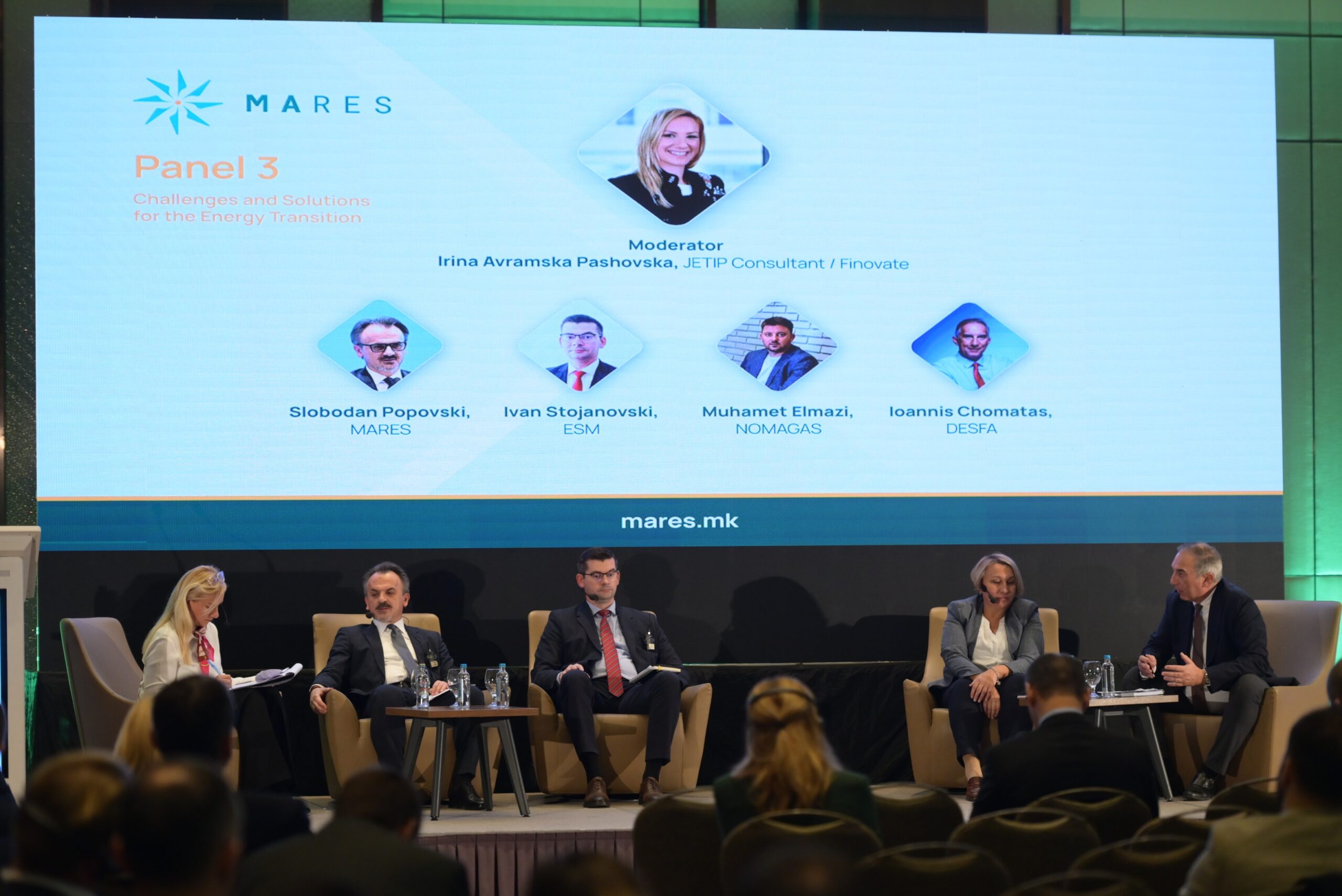
Panel 3 Key Discussion Points, “Challenges and Solutions for the Energy Transition”- MARES Conference 2024
The third panel addressed the challenges and solutions for the energy transition. It was highlighted that as the transition progresses, phasing out coal-fired power plants is a complex process, and adequate replacements are necessary to ensure a stable energy supply during the transition.
The role of natural gas as a widely recognized transitional fuel was also discussed. Both the public and private sectors agreed on the importance of implementing fair and transparent regulations to provide equal opportunities for all stakeholders involved. It was emphasized that consistent enforcement of these regulations is essential, supported by a strong and capable administration.
Moderated by Irina Avramska Pashovska, JETIP Consultant / Finovate, the panel provided valuable insights from experts on how to navigate these complex issues and move forward effectively.
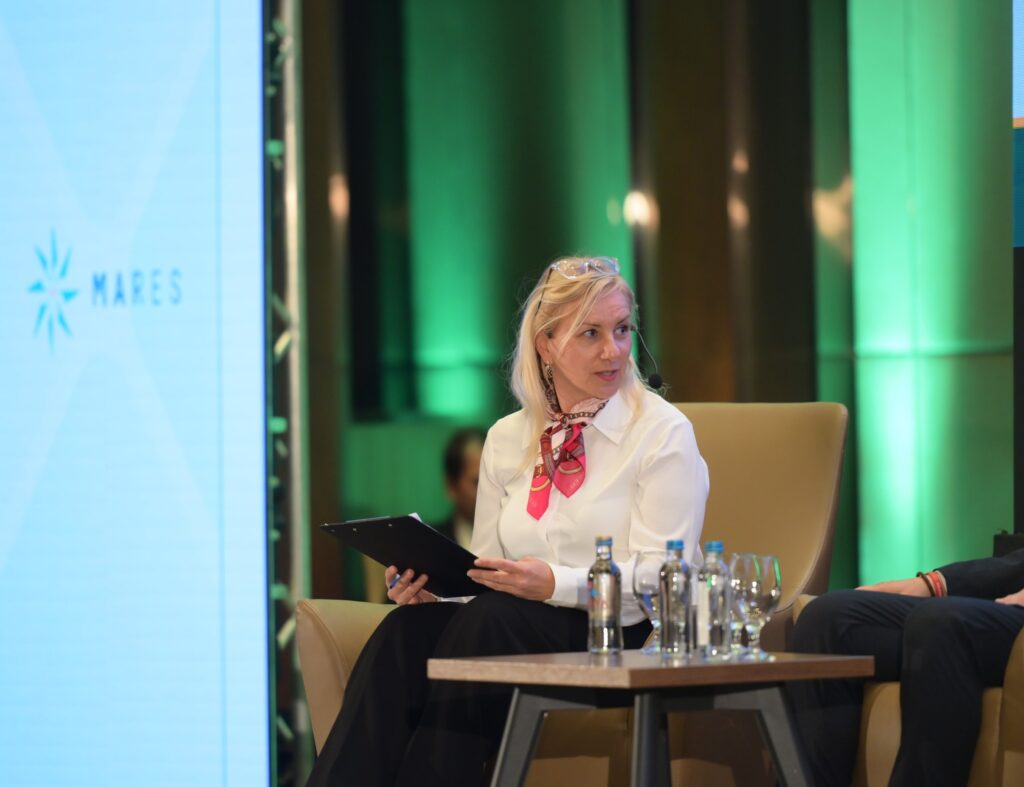
Keynote Speaker: Gianpiero Nacci, Director, Sustainable Business and Infrastructure, EBRD Climate Strategy and Delivery Group highlighted the importance of integrating energy transition within broader climate goals. He presented a decarbonization strategy, emphasizing how donor and investor support can accelerate the development of national capacities for energy storage and the use of renewable energy.
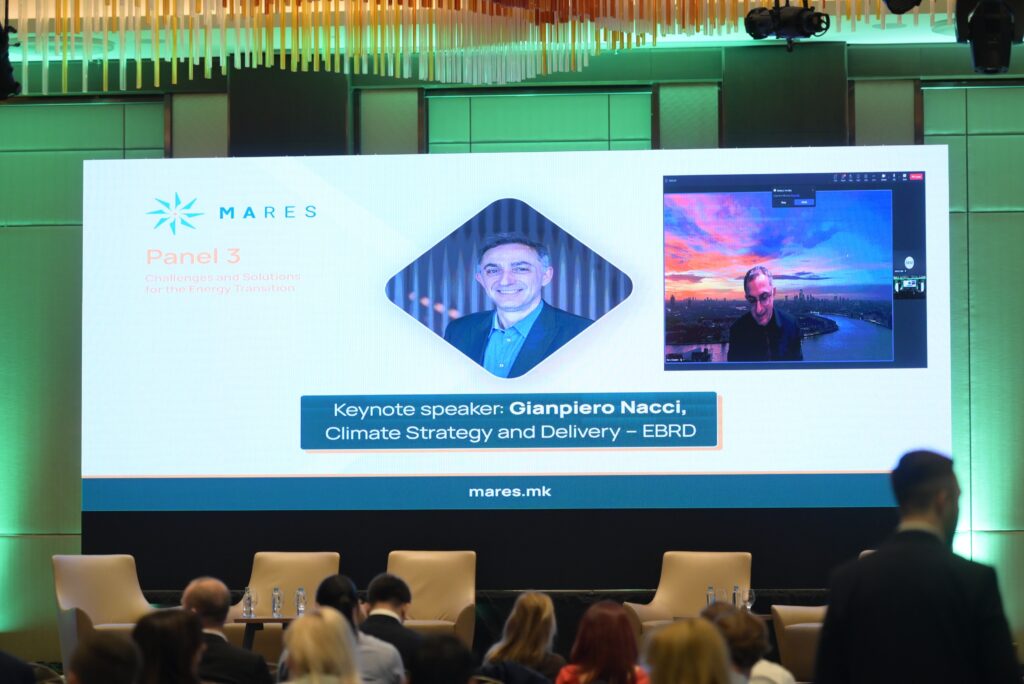
Slobodan Popovski, MARES, underlined the significant challenges North Macedonia faces in integrating renewable energy sources. He identified three key areas: first, the need for clear and concise regulation, backed by a competent and impartial administration; second, grid rules, addressing the current status of the grid and implementing technical solutions for its upgrade; and third, market development, focusing on creating an economically sustainable market that aligns with the country’s energy strategy.
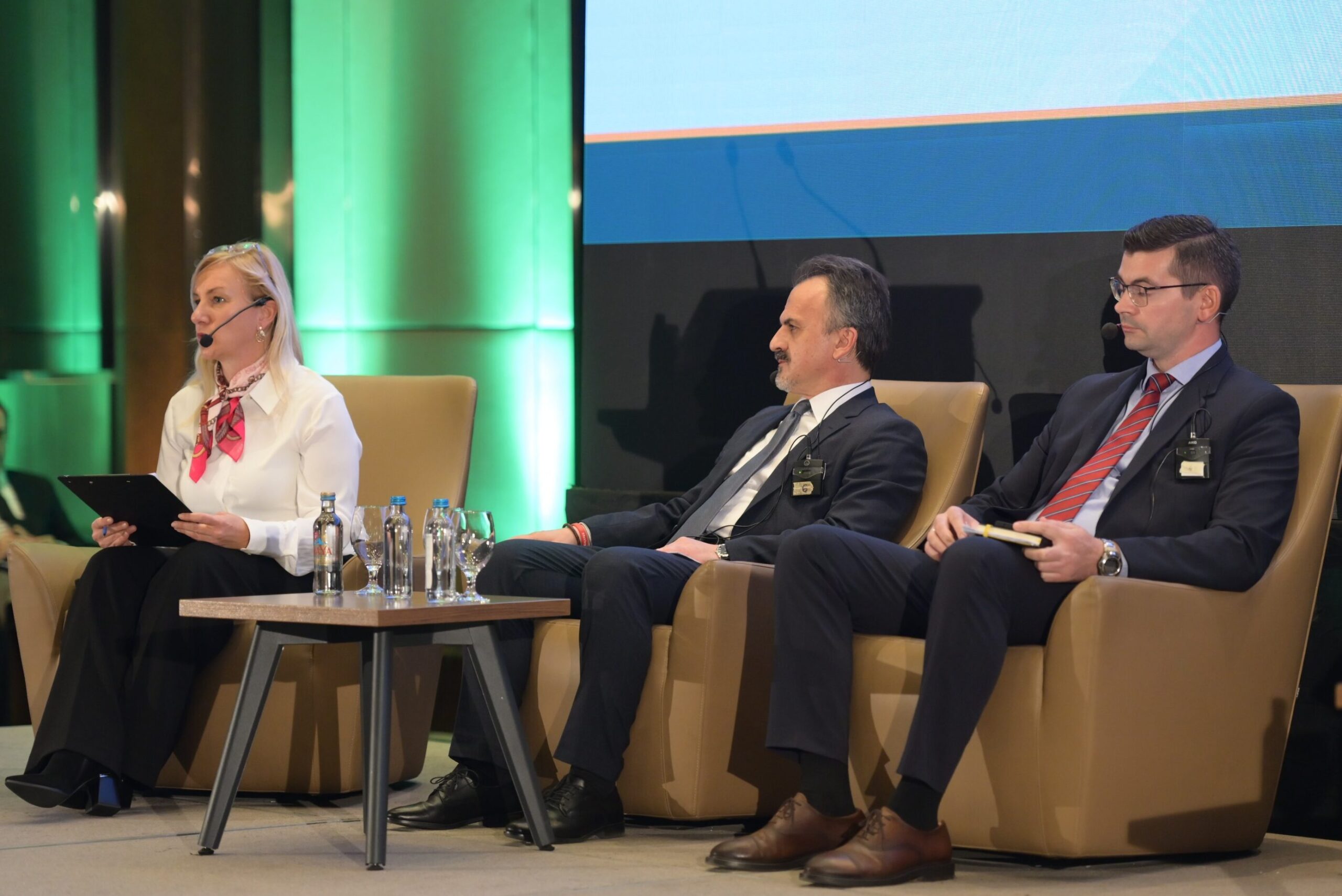
Ivan Stojanovski, Financial Director at ESM discussed the company’s ongoing projects, including solar and wind parks. He highlighted the importance of efficient public administration to ensure these projects are completed on time and deliver their intended benefits.
Violeta A. Spasova, Head of the Department of International Cooperation, Development and Investments at NOMAGAS, spoke about the role of natural gas in the green transition, emphasizing that although it is not a renewable energy source, it plays a crucial role in the process of transitioning to green energy. She highlighted that the North Macedonia – Greece interconnector is set to be 100% hydrogen-ready upon completion. Additionally, she discussed their ongoing work on the North Macedonia – Republic of Serbia interconnector project, aimed at completing the vertical corridor, which will also be fully hydrogen-ready.
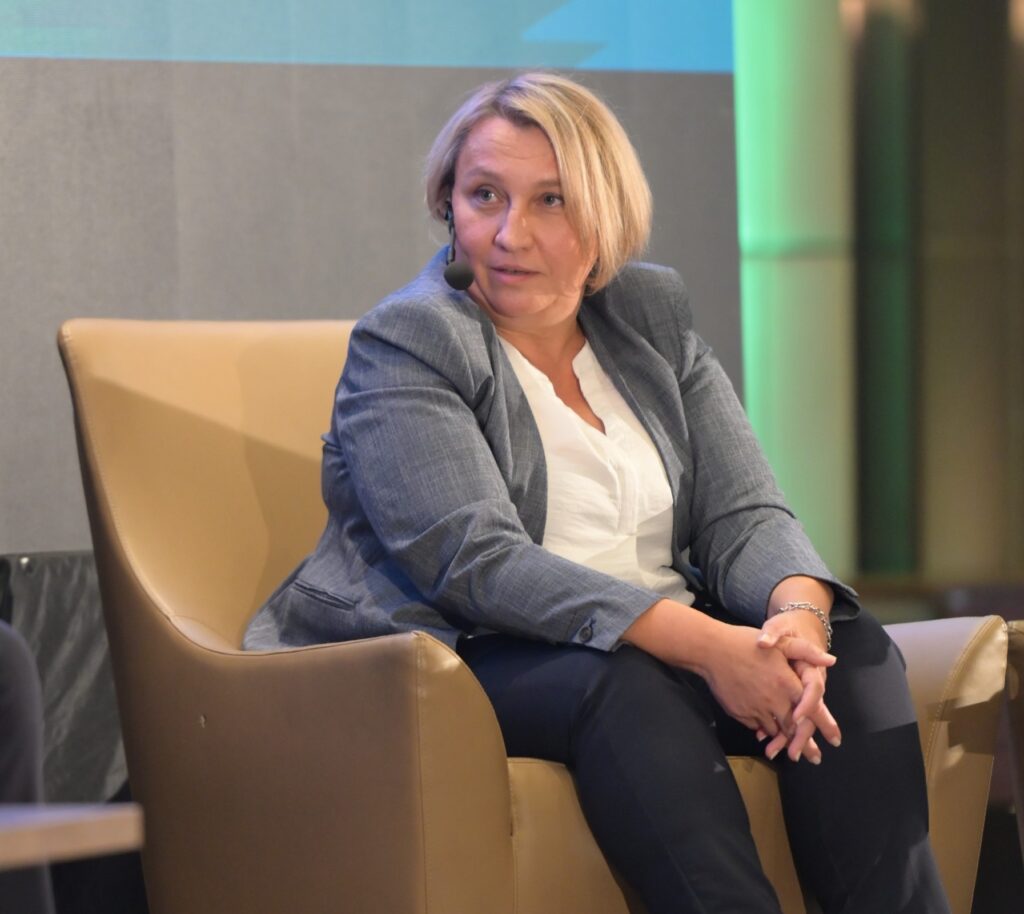
Ionannis Chomatas, Chief Officer, Asset Development at DESFA provided insights into his country’s strategic vision to become an energy hub through two key projects. The first is the Greece–North Macedonia Interconnector, a 120-kilometer gas pipeline already under construction in Greece, with North Macedonia in the tendering phase. This project is critical for connecting European energy networks. The second project involves integrating hydrogen into existing infrastructure, addressing challenges like material compatibility and safety standards. Chomatas stressed the need for grid upgrades and a favorable regulatory framework to attract private investors. He emphasized the importance of cooperation between the two countries to address both technical and financial challenges, highlighting the growing role of hydrogen in the energy transition.

The third panel wrapped up with a discussion on the key challenges and practical solutions for the energy transition. The panelists provided perspectives on how to address these issues and support the shift to greener energy systems.
Next, we’ll share insights from the fourth panel, “Energy Storage and Grid Infrastructure: Projections, Legal Frameworks, and Financing“.
